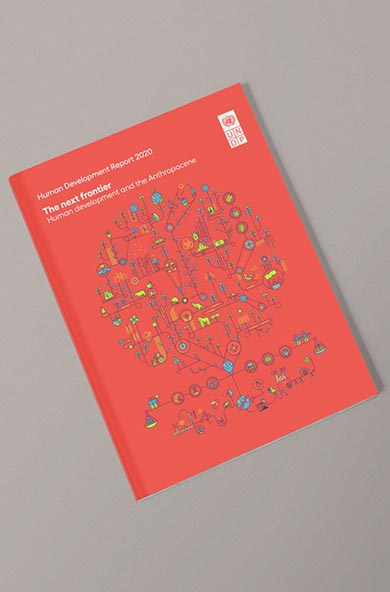Development Frontier Solutions
Introduction
Our world is staring down an existential crisis. We need to act now, act fast, and act innovatively. With its dynamic population and sprawling geographic diversity, the Asia-Pacific region is emerging as an ideal proving ground for piloting and scaling up ambitious solutions to the challenges confronting the global community. In this series, Development Frontier Solutions, we explore how Asia-Pacific countries are leapfrogging toward development solutions for climate resilience, stabilizing livelihoods, gender-rebalancing the labor force, and more.
Equanomics in the Asia-Pacific region
Gender inequality costs the global labor market a whopping $172 trillion each year. How can equanomics – the UNDP-championed focus on dismantling systems that perpetuate gender inequality and power imbalances – benefit the whole of society? Asia-Pacific Director Kanni Wignaraja showcases initiatives in Mongolia, Indonesia, Nepal, Afghanistan, and other countries in the region that use an equanomics approach to address imbalances and expand options for women.
What Cambodia’s social protection model can teach the world
More than 1 billion people operate in Asia’s informal sector without legal recognition or protection. But to formalize such a vast sector would be daunting and expensive. Cambodia’s solution? To legalize informal work by extending social security benefits to informal sector workers, improving workers’ financial stability and reducing vulnerability to exploitation. Asia-Pacific Director Kanni Wignaraja and Resident Representative in Cambodia Alissar Chaker share how nearly 3 million Cambodians have benefited from the country’s nimble social protection scheme, which began as cash assistance during the COVID-19 pandemic and has since been expanded with support from UNDP and ILO.
How Nepal responds to Glacial lakes outburst floods?
Glacier lake outburst floods, or GLOFs, are a rising threat for Himalayan communities in Nepal, capable of wiping out a village in an instant. But a new slate of innovative solutions is being implemented to prevent GLOF events. Asia-Pacific Director Kanni Wignaraja and UNDP’s Ayshanie Labe describe these feats of engineering taking place in near-vertical mountain terrain, from upstream dams and overflow channels to downstream early warning systems – and the lessons being applied across the region.
New cash crops for Afghanistan
Once the source of 70% of the world’s opium, Afghanistan’s illicit poppy production has been quashed under de facto authority rule. But what about the 600,000 former poppy farmers and their families, whose livelihoods now hang in the balance? Asia-Pacific Director Kanni Wignaraja and Resident Representative in Afghanistan Stephen Rodriques describe the transition to high-value crops like saffron, nuts, and exportable fruits, the emergence of legal market economies in former poppy terrain, and a sustainability-driven focus on water and climate resilience.
Strengthening climate resilience in the PNG highlands
Home to the world’s third largest continuous rainforest, the Papua New Guinea Highlands boasts a rich cultural heritage and abundant biodiversity. But climate change is making the lives and livelihoods of Highland communities more vulnerable – not only to natural hazards, but also to escalating violence and conflict. Asia-Pacific Director Kanni Wignaraja and Resident Representative in Papua New Guinea Nicholas Booth describe how UNDP is piloting strategies to address these challenges.
As sea levels rise, Tuvalu rises higher
Barely above sea level, the nine atolls that make up the Pacific Island nation of Tuvalu are in a fight for survival – not only of the land itself, but also of heritage, identity, and economy. Asia-Pacific Director Kanni Wignaraja shares Tuvalu’s bold, inventive, local-led strategy to rise above the odds by rising above the sea. Together with UNDP and international partners, Tuvalu’s government is implementing a coastal adaptation project to see the community through rising sea levels and strong waves beyond the year 2100.

 Locations
Locations

















